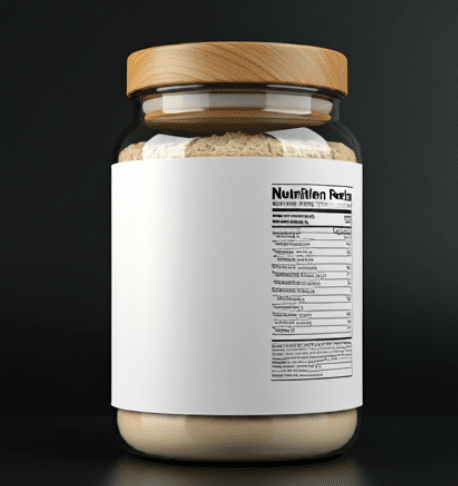Protein Powder: The Ultimate Guide for Beginners
Protein powder is one of the most popular supplements on the market, used by athletes, gym-goers, and even those simply looking to improve their overall health. But with so many different types and brands available, it can be overwhelming to know which one to choose. In this blog, we’ll break down everything you need to know about protein powder, including how it works, the different types available, and its benefits.
What is Protein Powder?
Protein powder is a supplement that provides a concentrated source of protein. Protein is an essential macronutrient needed for building muscle, repairing tissues, and supporting various functions in the body. While you can get protein from food sources like meat, fish, eggs, and legumes, protein powder offers a convenient and easy way to increase your protein intake, especially if you’re on the go or have specific fitness goals.
How Does Protein Powder Work?
Protein is made up of amino acids, which are the building blocks of muscle. When you consume protein powder, your body breaks it down into amino acids, which then get absorbed into your bloodstream and delivered to your muscles. This process is especially important after exercise when your muscles need to repair and grow.
Taking protein powder can help ensure that your body has enough amino acids to support muscle recovery and growth, particularly after intense workouts. It’s also useful for those who struggle to meet their daily protein needs through whole foods alone.
Types of Protein Powder
There are several types of protein powder available, each with its own unique benefits. Here’s a breakdown of the most common ones:
Whey Protein
Whey protein is the most popular type of protein powder, and for good reason. It’s quickly absorbed by the body, making it ideal for post-workout recovery. Whey protein is derived from milk and contains all nine essential amino acids, making it a complete protein source. There are two main forms of whey protein: whey protein concentrate and whey protein isolate. Concentrate is more affordable but contains slightly more fat and carbs, while isolate is more refined and has a higher protein content with fewer carbs and fat.
Casein Protein
Like whey, casein protein is derived from milk, but it’s digested more slowly. This makes it an excellent option for a nighttime snack, as it provides a steady release of amino acids to support muscle recovery while you sleep. Casein is also a complete protein, offering all essential amino acids.
Plant-Based Protein
For those who are vegan, lactose-intolerant, or prefer plant-based options, there are several plant-based protein powders available. Common sources include pea, hemp, rice, and soy protein. While many plant-based proteins aren’t complete proteins on their own, they can be combined to provide all essential amino acids. For example, a blend of rice and pea protein is a popular choice because it delivers a complete amino acid profile.
Egg Protein
Egg protein powder is made from egg whites and is another high-quality protein source. It’s also a complete protein, meaning it contains all essential amino acids. While it’s not as fast-absorbing as whey, it’s digested more quickly than casein, making it a good option for those with dairy sensitivities.
Collagen Protein
Collagen protein is unique because it’s not typically used for muscle-building purposes. Instead, collagen is beneficial for skin, joint, and bone health. It’s not a complete protein, but it’s rich in certain amino acids like glycine and proline, which support connective tissue health.
Benefits of Protein Powder
Now that you understand the different types of protein powder, let’s explore the benefits of incorporating protein powder into your diet.
Muscle Growth and Recovery
One of the primary reasons people use protein powder is to support muscle growth and recovery. After a workout, your muscles need protein to repair and grow stronger. Consuming protein powder, especially within the “anabolic window” (the 30–60 minutes after exercise), can help your muscles recover faster and promote greater gains over time.
Convenient and Time-Saving
Protein powder is incredibly convenient, especially if you have a busy lifestyle. Instead of cooking or preparing a protein-rich meal, you can simply mix a scoop of protein powder with water or milk and have a high-protein snack in minutes. This makes it easy to meet your protein goals even when you’re on the go.
Supports Weight Loss
Protein powder can be a useful tool for those looking to lose weight. Protein is known to be more satiating than fats or carbohydrates, meaning it helps you feel fuller for longer. By adding a protein shake to your diet, you can curb cravings and reduce overall calorie intake, supporting weight loss efforts.
Helps Preserve Muscle During Weight Loss
When you’re in a calorie deficit (eating fewer calories than your body needs), there’s a risk of losing muscle along with fat. Consuming enough protein, including through protein powder, can help preserve lean muscle mass while you lose weight, ensuring that the majority of the weight you lose is fat, not muscle.
Improves Bone Health
Protein is essential for bone health, and studies show that consuming enough protein can help prevent age-related bone loss. This is particularly important as you age, as maintaining strong bones can reduce the risk of fractures and osteoporosis.
Supports Overall Health
Protein isn’t just important for muscle—it plays a vital role in overall health. Protein supports immune function, helps regulate hormones, and is necessary for the production of enzymes and other important molecules in the body.
How to Choose the Right Protein Powder
With so many options on the market, how do you choose the right protein powder for your needs? Here are a few factors to consider:
Dietary Preferences
If you’re lactose intolerant or vegan, you’ll want to opt for a plant-based protein powder. If you have no dietary restrictions, whey protein is a great all-around option for most people.
Protein Content
Look for a protein powder that provides at least 20 grams of protein per serving. This ensures that you’re getting a sufficient amount of protein to support your fitness goals.
Ingredients
Always check the ingredient list for any added sugars, artificial flavors, or fillers. Some protein powders contain unnecessary additives that can detract from the quality of the product.
Flavor and Mixability
While not as important as the nutritional content, flavor and mixability are key factors for most people. Choose a protein powder that you enjoy the taste of and that mixes well with liquids to make your protein shakes more enjoyable.
Conclusion
Protein powder is a versatile and convenient supplement that can help you reach your fitness and health goals. Whether you’re looking to build muscle, lose weight, or simply boost your protein intake, there’s a protein powder that can fit your needs. By choosing the right type and incorporating it into your daily routine, you’ll be on your way to achieving better results in the gym and improving your overall health.


